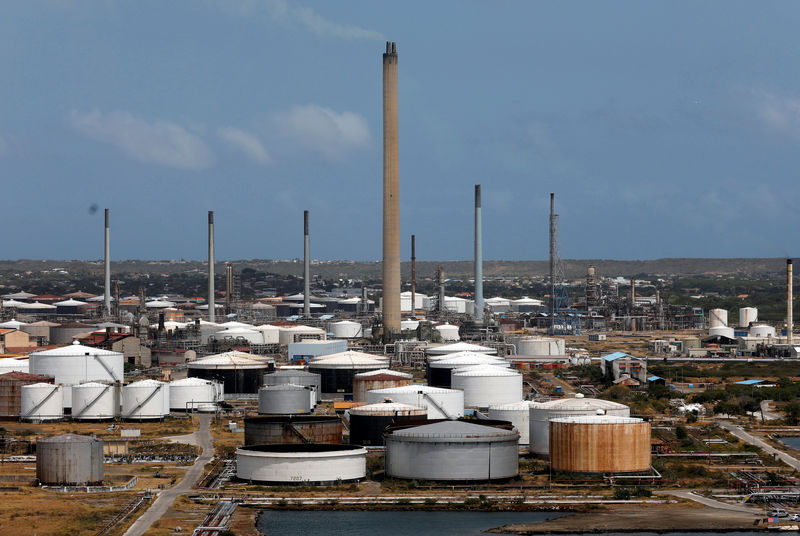By Julia Payne and Dmitry Zhdannikov
LONDON (Reuters) - The United States has instructed oil trading houses and refiners around the world to further cut dealings with Venezuela or face sanctions themselves, even if the trades are not prohibited by published U.S. sanctions, three sources familiar with the matter said.
The move comes as Washington's efforts to oust President Nicolas Maduro in favour of opposition leader Juan Guaido have stalled, and is further evidence of how it is leaning on non-U.S. firms to achieve its foreign policy goals.
The U.S. imposed fresh sanctions on Venezuela's oil industry earlier this year but some companies have continued to supply the country with fuel from India, Russia and Europe.
Washington is particularly keen to end deliveries of gasoline and refined products used to dilute Venezuela's heavy crude oil to make it suitable for export. Jet fuel and diesel would be exempt for humanitarian reasons, the sources said.
The U.S. Treasury's Office of Foreign Assets Control (OFAC) announced a ban in early February on the use of its financial system in oil deals with Venezuela after April.
But as recently as this week, the U.S. State department has called up foreign firms to say that the scope of the sanctions is wider.
The sources said that the State Department made clear that any kind of oil trade, whether it be direct, indirect or barter, would be considered a breach.
OFAC did not immediately respond to requests for comment.
A spokesman for the State Department said "we continue to engage with companies in the energy sector on the possible risks they face by conducting business with PDVSA."
"This is how the United States operates these days. They have written rules and then they call you to explain that there are also unwritten rules that they want you to follow," one of the sources said.
Washington has been using its oil clout more and more. At a major oil event in Houston this month, U.S. Secretary of State Mike Pompeo made a rare appearance and laid out a vision of working with energy firms to isolate Iran and Venezuela.
Venezuela's overall exports of crude and fuel dropped to 920,000 barrels a day in the first month of sanctions from more than 1.5 million bpd in the prior three months, according to Refinitiv Eikon and state firm PDVSA data.
Russia, however, remains a staunch supporter of Maduro's government which has plunged Venezuela into an economic and humanitarian crisis.
In an escalation of tensions, U.S. President Donald Trump called on Moscow to remove all its soldiers from Venezuela after a Russian military contingent arrived just outside of Caracas, saying "all options" were open to make that happen.
Russia responded on Thursday saying it had sent "specialists" to Venezuela under a military cooperation deal.

The biggest trading firms, based in Europe, such as Vitol, Gunvor, Mercuria, Trafigura and Glencore (LON:GLEN) account for about 10 percent of global oil trade.